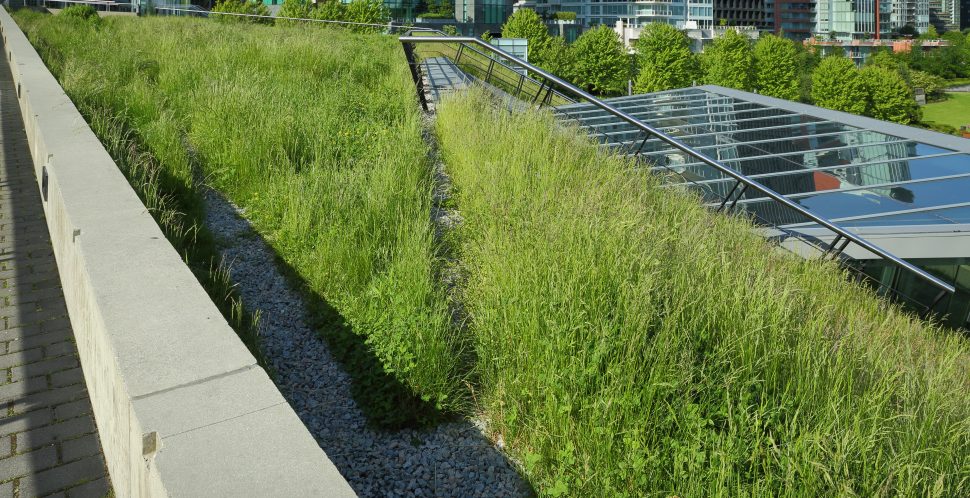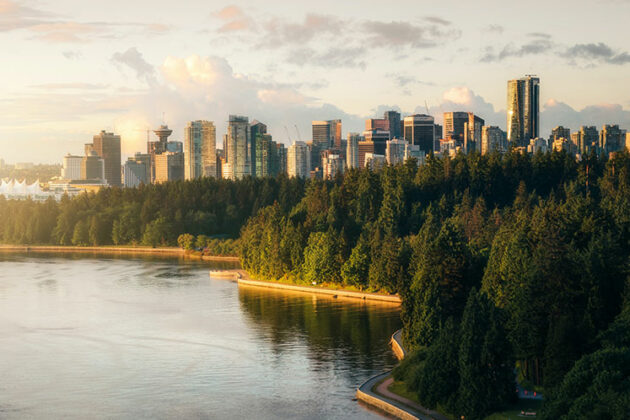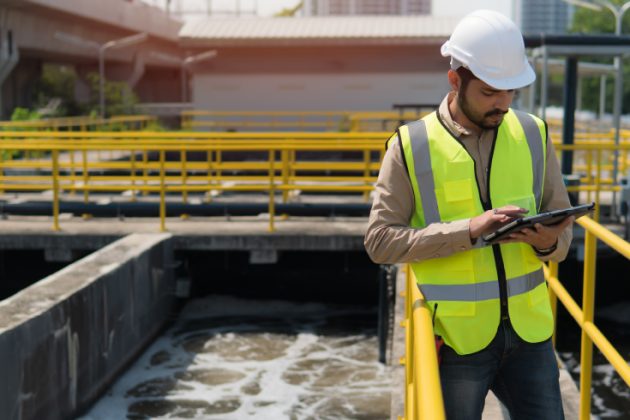The world faces an unprecedented and common challenge: intelligently and compassionately managing a global health crisis while the window to mitigate the catastrophic climate crisis shrinks.
As key contributors and supporters of the City’s Greenest City Action Plan, Renewable Energy Strategy and the emerging Climate Emergency Action Plan, the Vancouver Economic Commission (VEC) has been a strong and consistent believer in the importance of a renewable and circular economy for the region of Vancouver and its resident business community.
In addition to its tragic and ongoing human cost, the COVID-19 pandemic has diverted attention from the threat of climate change. There is a real threat of losing attention and momentum on climate action due to seismic shifts in the landscape shaping its discussion:
- Reduced political attention due to the postponement of this year’s UN climate summit, COP26;
- The easing or delay of environmental regulations in the interest of economic growth;
- Depressed oil prices that make low-carbon technologies less competitive; and/or
- Stimulus programs that consume funds governments might otherwise invest in a low-carbon transition.
While this diversion of attention is understandable, we risk locking the world onto a dangerous trajectory if we address the pandemic and global economic recovery independently from urgent action on the climate crisis.
The former governor of the Bank of Canada and Bank of England Mark Carney addressed this in a recent Economist article on how the economy must yield to human values. “After the COVID crisis, it’s reasonable to expect people to demand improvements in the quality and coverage of social support and medical care, greater attention to be paid to managing tail risks, and more heed to be given to the advice of scientific experts,” he wrote. “The great test of whether this new hierarchy of values will prevail is climate change. After all, climate change is an issue that (i) involves the entire world, from which no one will be able to self-isolate; (ii) is predicted by science to be the central risk tomorrow; and (iii) we can only address if we act in advance and in solidarity.”
“The next three years will determine the course of the next 30 years and beyond”
Due to international measures taken to address the pandemic, global carbon emissions are expected to decline by 5–10 percent in 2020 – the largest drop in emissions since World War II. However, any positive environmental gains from the global shutdown are unsustainable, coming at tremendous human and economic cost. As such, while federal governments’ financial responses to COVID-19-related shutdowns have been impressive and unprecedented, the post-pandemic economic stimulus plans will really matter.
From our regular participation on economic recovery task forces and industry consultation groups with the business community, VEC hears firsthand that the economic and financial numbers are stunning. Between the job losses and revenue declines, there is no doubt we are in a local and global recession. And our lessons from the last global recession tell us that government economic recovery packages represent an opportunity for a clean restart that we cannot afford to miss.
After the 2008 financial crisis, the ensuing economic slowdown saw reduced global greenhouse gas emissions in 2009. But by 2010, emissions had reached a record high, in part because governments implemented measures to stimulate economies with limited regard for the environmental consequences. We cannot repeat this in 2020; the stakes are even higher today. This time around, we must centre climate action in every decision, every plan, and every commitment.
Just today, Guardian published a warning from the International Energy Agency’s executive director Fatih Birol, who painted a dire picture of the need to prevent that post-lockdown emissions spike: “The next three years will determine the course of the next 30 years and beyond,” he told the Guardian. “If we do not [take action] we will surely see a rebound in emissions. If emissions rebound, it is very difficult to see how they will be brought down in future. This is why we are urging governments to have sustainable recovery packages.”
“Recovery packages that seek synergies between climate and economic goals have better prospects for increasing national wealth, enhancing productive human, social, physical, intangible, and natural capital.”
Vivid Economics
We know this economic recovery period will determine whether the world meets or misses the emissions goals of the 2015 Paris Agreement, which were set to limit average global warming to 1.5°C to 2°C. Anything above this mark will create risks our global economy and society are fundamentally unprepared to weather. Effective climate action must be accelerated. It must be at the top of our government and corporate agenda for this entire decade and beyond. Fortunately, the necessary transition to a climate-resilient low-carbon future can create abundant economic activity and drive the significant near-term job creation we need to kickstart ourselves out of the recession.
This fraught time in our history gives us a once-in-a-lifetime opportunity to trigger a clean reset – an undertaking that requires acts of extraordinary vision, courage and energy.
It’s important to note that while a clean reset is a moral imperative, it is also an economic one. Leaders must accept this challenge and spearhead the drive to a carbon-neutral economy. It will require them to think differently, and on an unprecedented scale.
Speaking from a Metro Vancouver-centric perspective, we must accelerate the implementation of local work on clean economic transitions – such as the municipal climate emergency responses, and the provincial CleanBC plan. We should pair this with leveraging the upcoming stimulus funding to quickly create jobs and economic demand, produce steady local growth, and promote rapid adoption of cleantech and renewable energy. And it is crucial to be inclusive and equitable during this clean rebuild – investing in education and training to support a just transition for workers that will be vulnerable to future impacts.
Business and industry leaders have also been preparing for the transition prior to the pandemic. “Over the 40 years… I have witnessed a number of financial crises,” writes Larry Fink, CEO of Blackrock Inc., in a letter to BlackRock’s clients and CEOs. “Even when these episodes lasted for many years, they were all, in the broad scheme of things, short-term in nature. Climate change is different. Even if only a fraction of the projected impacts is realized, this is a much more structural, long-term crisis. Companies, investors, and governments must prepare for a significant reallocation of capital. Every company, government and shareholder must confront climate change.”
By focusing on the climate agenda, even during this pandemic, the business and investment community can direct investments toward sustainable infrastructure, green jobs, and environmental resilience.
With near-zero interest rates for the foreseeable future, there couldn’t be better timing for sustainable business and green infrastructure investments. As it relates to the economic opportunities of addressing local CO2 emissions, here are three areas we are working on at VEC:
- The Built Environment – Buildings account for approximately 59 percent of CO2 emissions in Vancouver. Did you know that we have identified an over $3 billion market opportunity in the Lower Mainland alone for green building products? Imagine the economic opportunities and job creation for the retrofit economy.
- Transportation – Transportation-related emissions account for approximately 37 percent of Vancouver’s emissions. Did you know that Vancouver has plans to reduce the percentage of trips made by car to one-third of all trips? Imagine the business opportunities in green mobility options as Vancouverites continue to expand their options.
- Consumption & Waste – Activities related to consumption and waste account for the remainder of the local greenhouse gas footprint, but global GHGs are much more significant when we account for scope 2 and scope 3 emissions – emissions produced in the global supply chain and manufacturing for locally consumed goods. Imagine the opportunities for our local businesses in the circular economy.
In future posts, we will expand on these themes and how we can create economic opportunities and job growth while reducing the quantity and intensity of our local emissions.
COVID-19 may have caught the world by surprise, but the climate crisis has been predicted for decades.
Will we look back in another 10 years and see that we used this time in history to become more resilient and launch a more inclusive, equitable and sustainable economic recovery? Or will we in 2030 live with the consequences of squandering our last opportunity to reverse the trajectory of an even more devastating global crisis?
While we need all hands working to defeat the coronavirus and to restart the economy, to save lives and livelihoods, it is imperative to do so while catalyzing a rapid and resilient transition to a clean economy now. If we choose to ignore the issue for another year or two, the math becomes even more daunting. As with the COVID-19 pandemic, the sooner leaders in business, industry and governments act, the better the financial, environmental, and social outcome. We must act now to “flatten the curve” on climate change.

Bryan Buggey
Director, Vancouver Economic Commission
A senior executive with more than three decades of experience as a business leader in entrepreneurship, sustainability, innovation, consulting, and economic development. The breadth and depth of his experience includes Global 100 enterprises, entrepreneurial startups, scaling companies and the public sector.
At VEC, Bryan has been engaged in leading teams in the knowledge-based, low-carbon, circular economy by leading strategic initiatives, investment, sector development, and programs aimed at supporting innovators, entrepreneurs, investors, businesses, and other stakeholders in the Green Economy, Technology & Innovation sectors.



